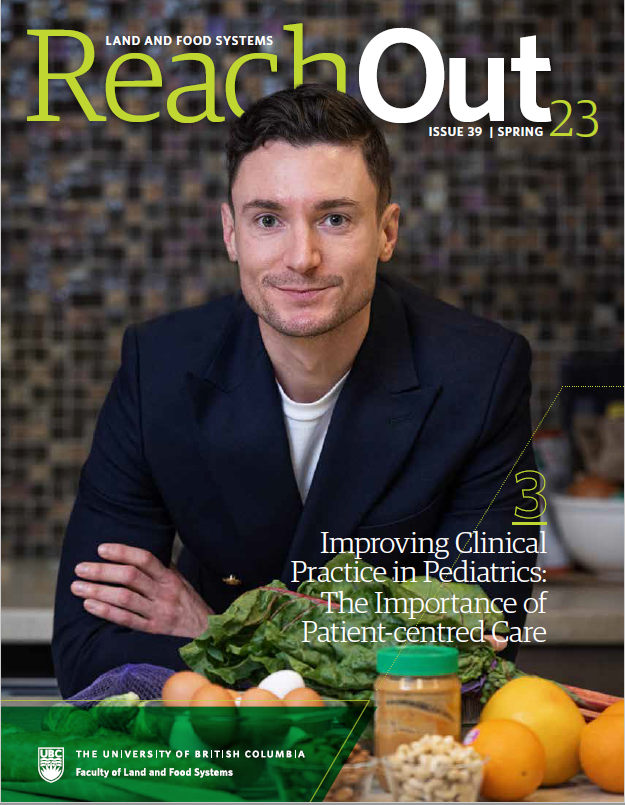Improving Clinical Practice in Pediatrics: The Importance of Patient-centred Care

PhD candidate in Human Nutrition
Brock Williams, a PhD candidate in Human Nutrition and a Registered Dietitian, has worked in pediatric nutrition for almost a decade. He says that research approaches have changed significantly over the years.
“In the research field, we’re used to disseminating information through publications and journals and going to conferences,” explains Williams. “We’re much more aware now that we have to involve patient partners in planning and designing research so that we’re asking the important questions that patients want to have answered.”
Williams is currently finishing up his PhD where he is studying folic acid supplementation in children with sickle cell disease, a genetic disorder that causes a rapid turnover of red blood cells. Folic acid, the synthetic form of folate, helps to produce red blood cells but since it is now in our food systems through mandatory fortification, researchers have questioned whether children still need to take supplements. Additionally, from the patient perspective, taking a daily folate supplement in addition to multiple other medications
can be burdensome for children.
A major component of Williams’s project was leading a clinical trial looking at whether current clinical practice needs to be re-evaluated.
“It’s a very involved process but I think the exciting thing about doing clinical trials is that the outcomes can really influence clinical practice,” says Williams. “I decided to go into a PhD because I wanted to conduct research that generates more evidence for clinical practice in pediatrics.”
Williams explains that the current practice for folic acid supplementation in sickle cell disease is largely based on results from a study that was done in 1983.
“A lot of the evidence that we have for this widespread clinical practice is old and very scarce so for this project in particular, there was a big need to have more high-quality evidence to answer that question.”
For his post-doctoral research, Williams will be joining the Division of Allergy at BC Children’s Hospital, where he will focus on identifying the challenges and barriers that caregivers experience in introducing and regularly feeding infants commonly allergenic foods, such as peanuts, tree nuts, eggs, sesame, shellfish, fish, and wheat.
In 2019, the Canadian Paediatric Society introduced new recommendations on preventing food allergies in babies: common allergenic foods can be introduced into the diet of children who are at higher risk of developing a food allergy around six months, but not before four months of life. This was a significant change from advice in the early 2000s, which was to delay
the introduction of common allergens to children until later in life – up to two years old.
This shift resulted from large, well-designed clinical trials that demonstrated the benefit of earlier introduction of allergenic foods, particularly peanut and egg, for the primary prevention of food allergy.
Williams explains that major issues for implementing the guidelines are often centred around convenience: lifestyle inconvenience and challenges with food preparation. Other issues include infant refusal of foods and parental perceptions around reactions to foods, where a child might have a skin issue or digestive issue and parents might perceive that as an allergic reaction.
With the research team at BC Children’s Hospital, Williams will be working closely with families to address these issues, develop unique strategies to overcome them, and promote frequent intake to maintain tolerance.
Communicating this type of research to the general public is also a priority: “We can’t just publish in journals and go to conferences. We have to disseminate the information in an accessible way so that individuals who are affected by certain conditions can see what’s happening in research and what the advances are too.”
Some of the communication initiatives that Williams and clinician-researchers at BC Children’s Hospital are planning include social media outreach and webinars, in partnership with organizations like Food Allergy Canada.
“At BC Children’s, parents of children with food allergies have expressed to us that they wished this information was accessible to them when they started introducing solid foods to their infants, and that accurate, evidence-based guidance on social media would have been so helpful.”
For more information on food allergies, visit the Food Allergy Canada website.
Tagged with: 2023, Food Nutrition and Health, Graduate
